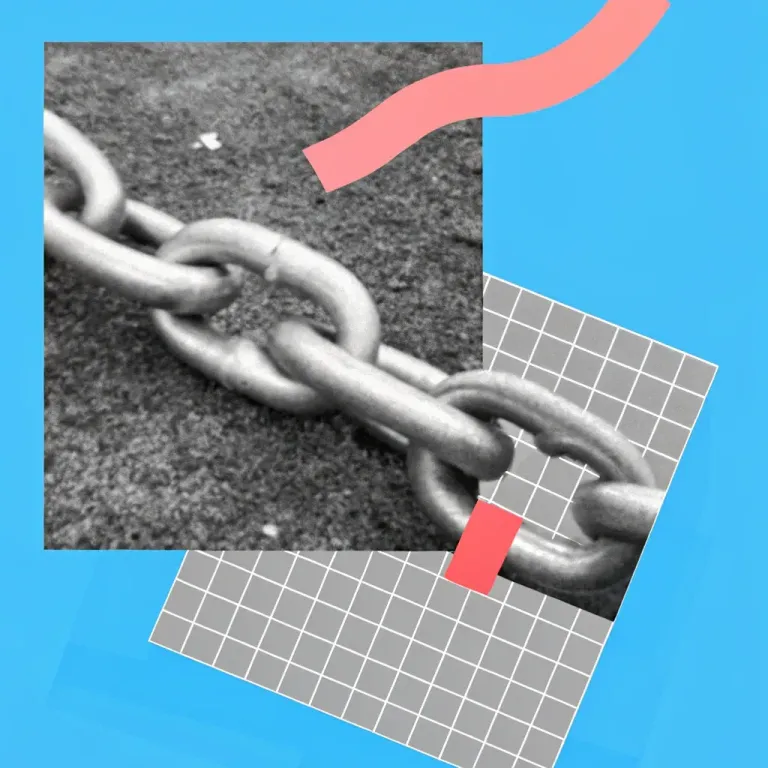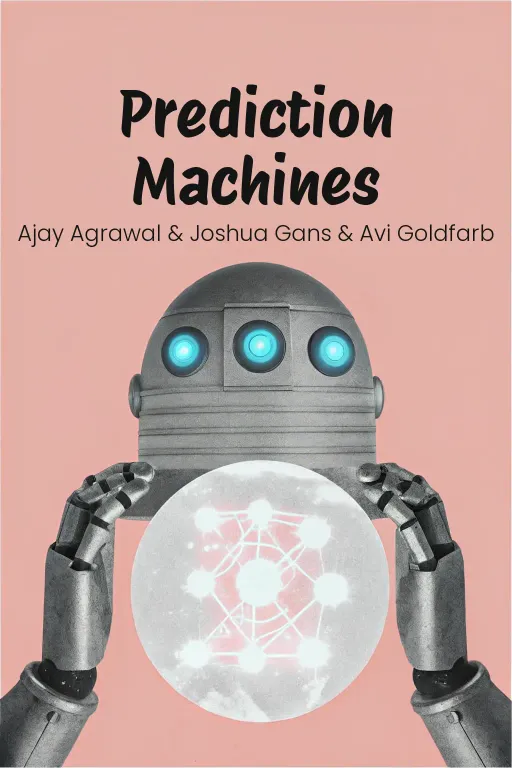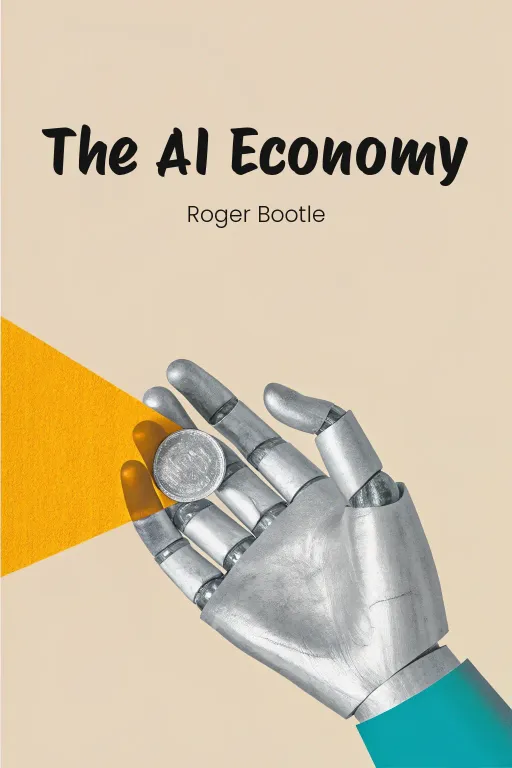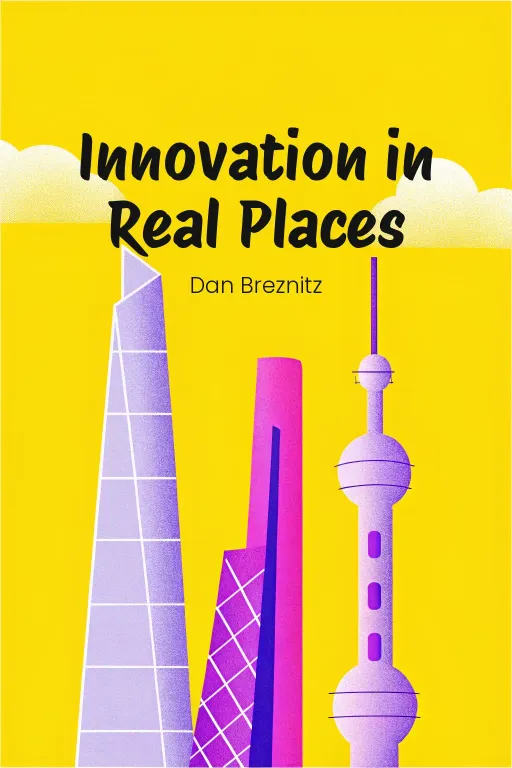
Reclaim Your Web: Decentralize & Thrive
Podcast by Wired In with Josh and Drew
The Fall of Big Data and the Rise of the Blockchain Economy
Reclaim Your Web: Decentralize & Thrive
Part 1
Josh: Hey everyone, welcome back! Today, we're tackling a huge topic: the battle between these giant tech companies and the whole idea of decentralized technology. If you've ever felt a bit weird about how much control Google and the like have over your digital life, well, this one's for you. Drew: Exactly, because who really wants a few corporations dictating our news, purchases, and basically everything else? And then you've got the decentralized folks promising blockchain will save us all. So, the big question is obviously, which side is actually right? Josh: Right, right, today's conversation is really inspired by a fascinating exploration of this exact problem. The book examines how centralized entities, the Googles, the Facebooks, the Amazons, have evolved into these monopolistic figures. These figures not only steer our internet browsing but also heavily influence our economy, culture, and even our sense of independence. But it doesn't stop there, it opens the gate into a future constructed on decentralized networks, incorporating technologies such as blockchain and cryptocurrencies, with the objective of overturning this power imbalance, while promoting fairness, innovation, and individual control. Drew: Sounds amazing, I mean, in theory, but how do you actually shift from Silicon Valley's grip to some kind of internet utopia without stumbling over a million problems along the way? Josh: That's precisely what we're going to unpack today. We've broken down this episode into three key questions. First off, how did these tech giants get so dominant in the first place? Is there some sort of, I don't know, special sauce besides just owning, well, everything? Drew: Yeah, spoiler alert: it's probably not magic, more like unchecked power, I bet. Josh: Exactly, then, we'll get into the revolutionary potential of decentralization. Like, what's so amazing about blockchain and all its decentralized friends? Is it really a “power to the people” moment, or just the latest tech billionaire's plaything? Drew: And finally, we're going to zoom out and look at the bigger picture. How could these innovations reshape not just the internet, but the whole economy, maybe even society itself? A bit ambitious, perhaps? Josh: Absolutely, but, you know, ambition is where real change begins. So, buckle up. We're about to navigate the path from today's centralized world to a decentralized future that, hopefully, puts the internet back in the hands of people like you and me.
The Rise and Dominance of Centralized Tech Giants
Part 2
Josh: Okay, so let's dive right into how these tech giants, especially Google, got so huge, right? It's amazing how Google, which started as this little college project, ended up changing not just itself, but the whole internet. Larry Page and Sergey Brin, they wanted a world where everyone could access information easily, kind of breaking down the old ways where knowledge was kept locked up. And that's really how they built a search engine that focused on what was actually relevant, not just what would grab your attention. That was a real game-changer back then. Drew: Yeah, absolutely. And now, a couple of decades later, they've gone from idealistic students to, well, the kings of data. It's like that saying, "be careful what you wish for." Giving everyone access to knowledge was a great idea, but somewhere along the way, Google stopped being just a library and became more like a gatekeeper—choosing which books we get to see and, you know, making money by watching us while we read. Josh: Exactly! The simple mission to help people slowly became a way to control things. The big change happened when Google started offering "free" services as their main money maker. I mean, who doesn't love free stuff? Free email, free videos, free maps… it feels like you're getting a gift. But really, we're paying with something else —our data, our habits, even what we're thinking about doing. Drew: Totally. It's the old "if you're not paying, you're the product" thing. Google figured out how to turn all that personal data into a goldmine. Every search, every ad click—it all goes into this algorithm that's always learning. Then, that algorithm figures out what ads or videos will grab you next. It's smart, but it's also a bit scary when you think about how good they've gotten at influencing what we see, and what we might think or buy. It’s advertising on steroids I would say. Josh: And it's the size of it that's “really” frightening. We're talking about huge, connected systems. Google doesn't just have a search engine; they control the hardware, the servers, the power for those data centers—even making their own special microprocessors. They've built this whole system that makes sure they stay ahead of everyone else. Drew: And let’s not forget those data centers, right? Those are like the fortresses of the digital world. And those centers, you know, they’re running on cheap hydroelectric energy – it epitomizes Google’s dominance. They’re kind of the beating heart of the whole operation, processing tons of data to keep everything running. It’s the kind of scale that basically just screams, "no one can compete with us." Josh: Right, and with all that, Google's able to “really” focus on their main thing: turning our attention into something they can sell. They've made advertising “really” smooth, so it feels like they're helping you, not just trying to sell you something. But the catch is, you're giving up some control over your digital life. Every ad that's just for you, every suggestion—it all makes it harder to make truly independent choices. Drew: It’s like they are nudging you in a certain direction, in this creepy, but effective way. Google isn’t forcing you—no one is saying “Buy this Now!”. Instead, they are relentlessly reshaping your environment where they wouldn’t have to force your hand—you’ll willingly follow this path they laid out. I mean, it’s clever, but also a little dystopian, don’t you think? Josh: It is. And it gets worse when you think about the ethics of it all. We've basically said it's okay for them to watch us so much because we want free stuff, faster results, and easier access. But this unspoken "deal" hurts our privacy and makes us think we have more choice than we “really” do. It's weird—a company that said it wanted to give everyone information now has most of the power over that information. Drew: "Paradoxical" is one way to put it. I'd probably say "ironic, almost sinister." The same company that claims to want to "organize the world's information" is happy to keep it locked up if it makes them more money. And no matter how much they say they're neutral, they're “really” the ones in charge. Whether you're a small artist, a business, or even a government trying to communicate online, you're playing by Google's rules here. Josh: Exactly. And that's why these centralized systems—like Google's—are risky. They put so much control in one place. And that control isn't just about money; it's about culture and even politics. If one change to an algorithm can hide some information while promoting other information, then that company has huge power over what people talk about. Drew: And that's why this whole push for decentralization is so important, right? You know, say what you want about the blockchain people and how idealistic they are, but they’re not wrong when they see centralized systems as a weakness. When all our data, all our choices, and our whole digital life goes through just a few gatekeepers, it’s not just a question of power—it’s a single point of failure. Josh: Precisely, and that's where the philosophical critique of centralization comes in! It's not just about money or convenience—it's about fairness, honesty, and making the system more resilient. Centralized setups have made problems like bias, surveillance, and monopolies even bigger. Decentralized technologies want to give power back to people, focusing on control and fairness. Drew: Okay, I’m tracking with you. But let me play devil's advocate for a moment, alright? Even if decentralization sounds great in theory, aren’t we just trading one set of problems for another? I mean, sure, Google’s big and scary, but at least their systems work. This decentralization thing? A lot of talk, but can it actually handle things at the scale we need, or is it just tech dreamers wishing for the best? Josh: And that, Drew, is the million-dollar—or maybe trillion-dollar—question, isn’t it? But before we get into whether decentralization can “really” do all that it promises, let's “really” dig into what those promises are.
The Emergence and Promise of Decentralized Technologies
Part 3
Josh: So, after talking about how centralized systems tend to monopolize everything, we should probably delve into the disruptive potential of decentralized tech. You know, it's not just about sticking it to big tech; it's suggesting a whole new way to connect online, really putting the power back in the hands of us, the users. Drew: Exactly, and today's topic will be about whether it is worth the hype. So, Josh, let's get into it. What's the foundation of this decentralization idea? Give us the basics. Josh: So, decentralization relies heavily on blockchain tech. Think of a blockchain as a public record book spread across lots of computers. Every transaction—crypto transfers, smart contracts, data posts—is verified and recorded openly. And here’s the kicker: it’s unchangeable. No central power can just delete, change, or mess with it. That's the opposite of centralized platforms, where one company controls everything. Drew: Right, so theoretically, it gets rid of middlemen like Google and Facebook. But how does this actually affect regular people? How does a blockchain alternative differ from, say, Google? Josh: Okay, let's use Blockstack, now called Stacks, as an example. Imagine owning your online ID instead of depending on a Google or Facebook account. With Blockstack, your ID is stored on the blockchain, securely encrypted, and you decide how it’s used. Drew: So, Blockstack gives me one universal login that’s mine? No data sharing, no weird "We're improving your experience" stuff? Josh: Exactly. Blockstack users can use apps, websites, etc., without creating tons of accounts or losing control of their data. If you log into a video app, you don’t have to worry about them storing or selling your data. It's direct, secure, and controlled by you. Drew: Sounds great, but a universal ID also sounds like a target. Couldn’t someone hack that ID and control your whole digital life? Josh: That's a good consideration. That's why user security is a major focus in these systems. Blockchain itself is super secure because changing it requires a crazy amount of computing power to alter records across all computers. Plus, with encryption and decentralized storage, it's way harder to compromise than traditional platforms. Drew: Okay, hacking Blockstack sounds like hacking every library in the world at once. But it seems specific. Are decentralized systems scalable for larger adoption? Josh: That's fair. Blockstack isn’t Facebook-level big yet. But look at Brave Browser, another standout that focuses on online advertising. Brendan Eich, JavaScript’s creator and Mozilla co-founder, created Brave to fix the problems with traditional ad models. Drew: Ah, ads, where everyone profits except the user. Josh: Exactly. Brave addresses this with its Basic Attention Token, or BAT, which pays users for their attention. Instead of intrusive ads or secretly tracking data, Brave lets you choose privacy-respecting ads. You get BAT for watching them. Advertisers engage ethically, and creators earn BAT directly from fans. Drew: So, Brave pays me to browse and the ads don't steal my data? Josh: Exactly. It’s ethical, transparent, and mutually beneficial. Right now, advertisers spend big to reach users, but much of that goes to intermediaries. Brave cuts out those middlemen. You get paid, advertisers get engagement, and creators get paid directly. Drew: Okay, that’s a mini ad revolution. But what if advertisers or users don't use BAT? Doesn't Brave face the same limited adoption as Blockstack? Josh: Definitely a challenge. Adoption is crucial for decentralized tech. It’s about proving the system works and getting enough people—or advertisers—on board. But Brave has over 50 million users, and major brands are testing its ad platform. It’s not Google-sized, but it’s further than people might think. Drew: Fair enough. Now, these systems need user participation and education. People need to understand blockchain, tokens, and privacy keys. Most barely know passwords, let alone manage their digital IDs. Josh: That’s where design and usability matter. Decentralized tech must connect complex systems with easy interfaces. Brave, for example, works like any browser. You don’t need to be a crypto expert to earn BAT or use its privacy features. Blockstack also simplifies things while maintaining security. Drew: So, to go mainstream, decentralization needs to be as easy as what we have now, but without the shady stuff. But even if Brave and Blockstack succeed, what about deeper issues like governance? Decentralization sounds good until disputes happen or bad actors appear. Without a central authority, who steps in? Josh: Governance is tricky in decentralized systems, and there’s no pretending otherwise. Look at Decentralized Autonomous Organizations, or DAOs. These are groups managed by smart contracts that make decisions via democratic voting. Think of a cooperative where everyone votes. It’s experimental, but it reinforces the idea that power doesn’t need to be centralized to work. Drew: DAOs, huh? Sounds good—until someone buys most of the votes and creates another oligarchy. Isn’t that just centralization in disguise? Josh: Well, no system is perfect. But decentralization provides tools to make power less “abusabile” than centralized systems do. It’s about restoring balance toward fairness and transparency. It won’t eliminate all problems, but it sets a fairer base than what we have now. Drew: I'm still a little skeptical, but it's interesting—if decentralization can work through its growing pains, that is.
Broader Economic and Societal Implications
Part 4
Josh: So, Drew, after laying the groundwork of what decentralized technologies are, let’s dive into the broader implications—the economic, societal, even philosophical shifts they could bring about. We’re really talking about a potential rearrangement of our financial systems, global power structures, and even how we approach innovation and learning. Drew: Whoa, Josh, you’re painting a pretty revolutionary picture. Decentralization: not just a tech trend, but a societal earthquake? Color me skeptical, but intrigued. So, where do we begin to unpack this? Josh: Let’s start with how these decentralized technologies are shaking up the traditional financial landscape. Look at Bitcoin: it wasn’t just some coding project; it was fueled by anger from the 2008 financial crisis. Banks collapsed, governments stepped in, and people lost trust. Satoshi Nakamoto—whoever they are—designed Bitcoin to cut out those central authorities, a peer-to-peer currency built on a blockchain validated by everyone. Drew: Ah, a direct response to the “too big to fail” mentality, where the fat cats control the money and everyone else pays the price. Now, we’ve got miners solving cryptographic puzzles, keeping the system honest, and earning Bitcoin rewards. But here’s my perennial Bitcoin bugbear: the energy consumption. It’s like a small country’s worth of electricity just to keep the thing humming. How sustainable is that, really? Josh: It's a fair point. Bitcoin's proof-of-work system, while secure, is energy-intensive. But there are alternatives. Ethereum, for example, is moving to a proof-of-stake model. Validators stake their coins instead of using massive computing power, which is far more energy-efficient. Drew: Okay, so maybe fewer strained power grids. But stepping away from the tech details, how practical is Bitcoin—or crypto in general—as actual money? The volatility is insane. One day it’s worth a down payment on a house, the next, maybe a fancy dinner, right? Josh: Absolutely, Bitcoin's volatility makes it unsuitable as a stable everyday currency right now. However, look at places like Venezuela, where hyperinflation has destroyed faith in the national currency. For many there, cryptocurrencies offer a more reliable option than government-printed money. And then you have Ethereum, with its smart contracts—self-executing agreements on the blockchain. It's not just about payments; it’s about automating complex transactions like real estate deals or business agreements, without the need for traditional intermediaries. Drew: Smart contracts sound like a great way to finally get rid of the suited paper-pushers. But seriously, Josh, who's actually using this stuff on a large scale? Josh: Adoption is growing, but you're right, it’s not quite mainstream. But these technologies raise the question: if decentralized financial systems are viable on a smaller scale, why not gradually expand them? And it’s not just about money. It’s about rethinking control. Blockchain shifts reliance from centralized trust to decentralized consensus. That’s pretty revolutionary. Drew: Alright, so finance is one piece of the puzzle. Let's talk global power dynamics. Historically, technology has been concentrated in a few key hubs, like the U.S., Europe, and now China. Is decentralization truly leveling the playing field, or are we just seeing new players emerge in the same old game? Josh: That’s a critical point. Traditionally, innovation has been top-down, dominated by places like Silicon Valley and Beijing. Decentralization offers the potential to flip that model. Imagine countries that historically lacked economic influence directly accessing global financial and data networks, without seeking permission from established power centers. That would be a real game-changer. Drew: I see what you mean—cut out the gatekeepers and allow regions to leapfrog existing technologies. But can you give me a concrete example? Has this actually happened anywhere yet? Josh: Absolutely! Take, for example, the water management innovations in Israel. They've solved historical water scarcity issues with cutting-edge technology. Now imagine a similar model powered by blockchain: secure data, transparent distribution, and decentralized systems to ensure efficiency. Suddenly, the developing world isn’t left behind; they’re innovating locally with tools that put them on a global stage. Drew: OK, I'm on board with practical applications like that. But these examples are still somewhat isolated. Let’s move closer to home: education. How is decentralization changing how we learn, or, should I say, who gets to succeed? Josh: Education is definitely ripe for disruption. Traditional institutions, like Harvard, are prestigious but have flaws: rising tuition, ideological rigidity, and degrees that often don’t prepare students for real-world challenges. Decentralized systems, like the Thiel Fellowship, are a complete contrast. Peter Thiel essentially said, “Forget traditional education—here’s funding to pursue ground-breaking ideas.” Vitalik Buterin, the founder of Ethereum, is a prime example. He left university to design one of the most impactful blockchain systems. Drew: Makes you wonder if universities are becoming obsolete, right? Why go into debt for a degree when you could jump straight into solving real-world problems? Josh: Exactly! Decentralized education prioritizes skills and ideas over credentials, think mentorship programs and open-source collaboration platforms instead of rigid institutions. It fosters creativity and innovation, rather than confining it to an existing system. Drew: But it all seems geared towards tech-savvy, self-starters, not necessarily the average person. Do decentralized systems risk leaving behind the very people they promise to empower? Josh: That’s a critical question. Scaling accessibility is the biggest challenge. But with better design, user-friendly interfaces and education, the aim is to make these systems viable for anyone. It all ties into a deeper philosophical point: decentralized models flourish by bringing more voices into the decision-making process, unlike centralized frameworks which tend to exclude people. Drew: Speaking of philosophy, where does Gödel’s Incompleteness Theorem fit into all this? Sounds more like a math lecture than something with societal implications. Josh: Ah, Gödel’s theorem is a powerful metaphor here. It essentially shows that no centralized system of rules can ever fully capture all truths—there will always be gaps and limitations. Decentralized systems, on the other hand, thrive because they’re adaptive, diverse, and not tied to one single framework. They see human diversity as a strength, which compensates for the limitations of rigid centralization. Drew: Okay, that’s almost poetic, but don’t get carried away. Even decentralized systems still rely on humans to play fair. Philosophical ideals are great, but in the real world, how well do these systems hold up under scrutiny? Josh: That’s the core challenge. Philosophically, mathematically, decentralized systems promise adaptability and inclusivity. But like any model, it’s the implementation—balancing design, ethics and usability—that determines whether that promise becomes reality. Nonetheless, this shift toward decentralization represents a significant moment of change, and that's something we should pay attention to.
Conclusion
Part 5
Josh: Okay, so today we've essentially looked at two different models, right? On one end, you've got the big centralized tech companies like Google. They started with these great ideas, but, well, they've become these massive power structures, turning everything—our data, even our choices—into something they can sell. Drew: And then, completely the opposite, you see these decentralized systems popping up. Almost like a rebellion, trying to rebuild the internet, even our economy, around principles like fairness, openness, and, most importantly, giving the control back to the users. Josh: Exactly! But, of course, smack-bang in the middle of all this is humanity. Flaws and all, trying to make sense of this digital turning point. Centralization, even with its downsides, makes things scalable and efficient, right? Decentralization, promising equity and freedom, is still trying to prove itself outside of the theoretical. Drew: So, if you had to pick one important thing from this discussion, Josh, what would it be? Josh: I think it's that technology, whether it's centralized or decentralized, mirrors the values of its creators and users. We're not just bystanders here. The future of the internet – who's in charge, who benefits, and who gets left in the dust – will be determined by the decisions we're making now. Drew: So, maybe the real question isn’t "Can decentralization actually work?" but more like, "Are we willing to fight for and support a more equitable internet?" Regardless of whether it's protecting your own data, pushing for easier-to-use tools, or changing how we interact with these systems, we actually have the power to change things. Josh: Absolutely! And that's the challenge we're giving you: “really” examine the technology that you use every day. Be inquisitive, ask the tough questions, think about the kind of digital world you want to help create. Because ultimately, this isn't just about the tech itself. It's about who we are, and what we aspire to be. Drew: Wow, that's deep, Josh. But you're right, if the internet's getting a rewrite, we might as well grab a pen and write our own story.









